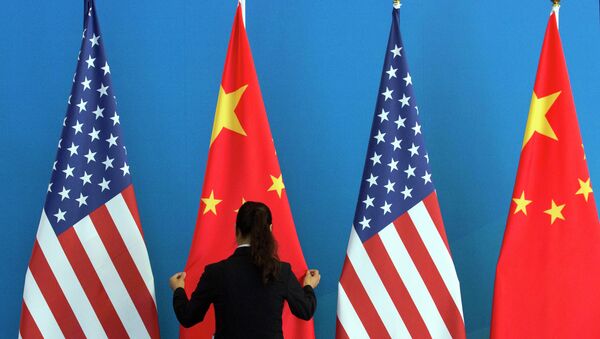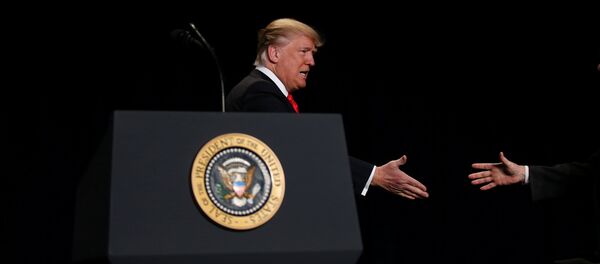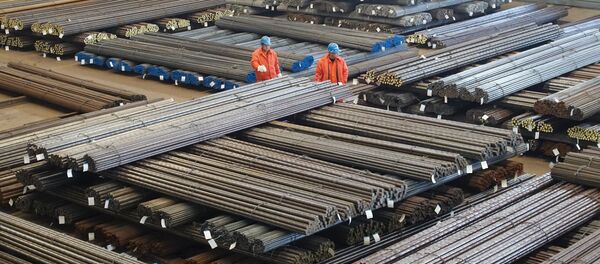The 20-person task force of senior academics and think tank experts presented the White House with its 72-page report, sponsored by the Asia Society's Center on US-China Relations, and the University of San Diego's School of Global Policy and Strategy, on Sunday.
Since his election, Trump and members of his cabinet have accused China of manipulating its currency, indicated that they may disavow the One China policy, and accused Beijing of being no help in containing the threat posed by the North Korean nuclear program. They have also warned the country about its activities in the South China Sea.
Speaking to Radio Sputnik, Professor Orville Schell of the Center on US-China Relations at the Asia Society, one of the report's authors, explained that the expert group was formed in the run-up to the American presidential elections, with a view to inform the next president (presumed to be Hillary Clinton) on China policy.
"Then of course to our surprise, Donald Trump got elected President, which then threw the other side of the equation – namely the American side, into a state of imbalance that was similar to that of China," Schell suggested.
"On the other hand, [the report says] that China should be somewhat chastened – that its rather more assertive and flexible postures around the world are risking conflict, and that the US does need to step up, arch its back and respond to China with greater resolve if we hope to have a relationship that's equitable and balanced," the analyst said.
What's at stake is "more than a clash of the world's two largest economies," according to Schell. "At root, it's also a clash of different political systems, different values, different ways of imagining the world order. But there are no more consequential countries in the world than the US and China. [They are] the kind of keystone of the global foreign policy arch, and it's critical that the new President, and President Xi in China, get that right, or we could have grave consequences."
Commenting on the overall state of the relationship between the two powers, Schell said that "it's more uncertain now than it's been at any time in my life, and I've been watching China now for over half a century. I think it's really imperative that the Trump administration move carefully, thoughtfully and deliberately, and I think it's equally as imperative that China recognize that the status quo is not functional – that it's out of balance and it needs some serious and structural changes in order for it to work."
"Both countries are going to have to make some very serious decisions about how far they're willing to go to be flexible and cooperate, or whether we're going to continue to have this sort of tit for tat and eye for an eye frame of mind," the analyst added.
Schell emphasized that if the two countries do engage in some kind of trade war, it's not a question of which of them will get hurt more, but of how much the world gets hurt. "These two countries have the largest economies in the world, and if they start struggling and get into tariff wars or other kinds of conflicts, it's going to have repercussions all around the world…The US and China, if they are going to purport to be world leaders, simply have to work this out, and have to take a mature and temperate attitude, and recognize that there's more common interest than not. I think that's the challenge right now," the analyst concluded.




